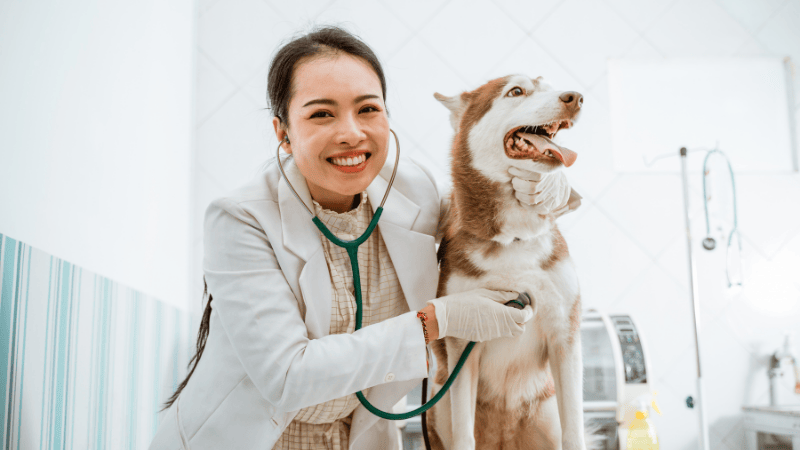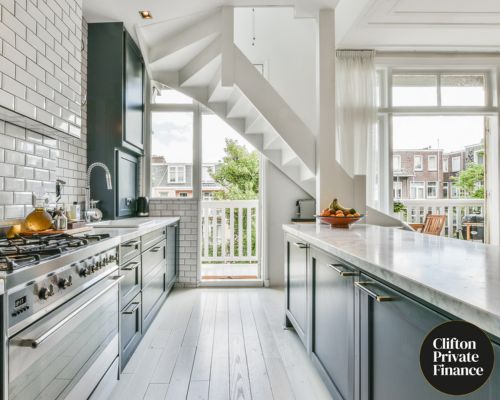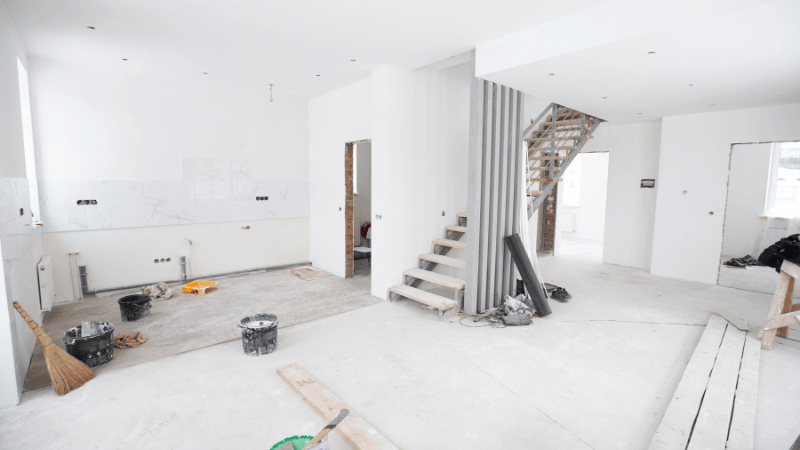Categories
Mortgages for Veterinarians | The Complete Guide

Are you a veterinarian looking to secure a mortgage in the UK? Your career offers unique advantages when it comes to property financing. Whether you're aiming to buy your first home, upgrade to a larger property, or invest in your own veterinary practice, understanding how to leverage your professional status for a mortgage is crucial.
Let's explore how your career as a veterinarian can open doors to enhanced mortgage opportunities, allowing you to maximise your financial potential and achieve your property goals.
Professional Mortgages for Veterinarians
Comparison Table: Standard vs Professional Mortgages
Types of Mortgages for Veterinarians
Veterinary Practice Ownership and Commercial Mortgages
Future Trends in Veterinary Practice and Mortgage Implications
Tax Considerations for Veterinarian Mortgages
Government Schemes for Veterinarians
Application Process for Mortgages
Regulatory Environment and Professional Status
Ready to Explore Your Mortgage Options?
Professional Mortgages for Veterinarians
As a veterinarian, you're part of a select group of healthcare professionals who may qualify for specialised mortgage products. These 'professional mortgages' recognise the stability and earning potential of your career.
Benefits for Veterinarians
Veterinarians often enjoy higher income multiples. While standard mortgages typically offer 4-4.5 times your annual income, you might access up to 5-6 times your salary as a veterinarian.
Lenders may view veterinarians as low-risk borrowers. This can translate into more favourable interest rates, potentially saving you thousands over the life of your mortgage. Additionally, some lenders offer more lenient terms for veterinarians, such as considering future earning potential or being more accommodating with contract work.
Comparison Table: Standard vs Professional Mortgages
|
Feature |
Standard Mortgage |
Professional Mortgage for Veterinarians |
|
Income Multiple |
4-4.5x |
Up to 5-6x |
|
Interest Rates |
Market average |
Often below market average |
|
Borrowing Limit |
Based on current income |
May consider future potential |
|
Deposit Required |
Typically 10-15% |
May offer 95% LTV mortgages |
|
Contract Work |
May be restrictive |
More accommodating |
Eligibility Criteria for Veterinarian Mortgages
To qualify for these enhanced terms, you'll typically need to:
- Be fully qualified and registered with the Royal College of Veterinary Surgeons (RCVS)
- Provide proof of income and employment status
- Have a clean credit history
Some lenders may also consider newly qualified veterinarians, recognising the structured career progression in your field.

Types of Mortgages for Veterinarians
- Residential Mortgages: For purchasing your primary residence. As a veterinarian, you may access higher loan-to-value ratios and better rates.
- Buy-to-Let Mortgages: If you're looking to invest in property, your professional status could help you secure more favourable terms.
- Commercial Mortgages: These are used to acquire premises for a veterinary practice. For instance, if you're looking to buy a £500,000 property for your practice, you might be able to borrow up to 70-75% of the value, meaning you'd need a deposit of £125,000-£150,000.
- Locum Mortgages: Tailored for veterinarians working as locums or on short-term contracts. Some lenders offer more flexible criteria for assessing income in these cases.
Locum Veterinarians and Mortgages
Locum work is common in veterinary practice, and while it can offer flexibility, it may present challenges when applying for a mortgage. Here's how lenders typically assess locum income:
- Length of service: Lenders often look for at least 12 months of locum history
- Average income: They may calculate your average daily or weekly rate over the past year
- Future contracts: Evidence of ongoing or future contracts can strengthen your application
- Specialist lenders: Some lenders specialise in mortgages for professionals with variable incomes

Veterinary Practice Ownership and Commercial Mortgages
For veterinarians looking to buy their own practice, commercial mortgages are available. Key points to consider:
- Loan-to-Value (LTV) ratio: Typically 70-75% for veterinary practice purchases
- Business plan: Lenders will require a comprehensive business plan
- Deposit: You'll need a larger deposit compared to residential mortgages
- Repayment terms: Often shorter than residential mortgages, typically 15-25 years
Future Trends in Veterinary Practice and Mortgage Implications
The veterinary sector is evolving, with potential impacts on future earning potential and mortgage affordability:
- Increased pet ownership: Growing demand for veterinary services may lead to higher salaries
- Specialisation: Veterinarians with niche expertise may command higher salaries
- Telemedicine: Growth in this area may create new business opportunities
- Corporate consolidation: Might affect practice ownership opportunities and employment structures
These trends could positively influence how lenders view veterinarians' long-term financial stability.
Tax Considerations for Veterinarian Mortgages
Tax implications vary depending on your employment status and the type of property:
- Employed veterinarians: Standard income tax considerations apply
- Self-employed veterinarians: Can offset mortgage interest against rental income for buy-to-let properties
- Practice owners: Commercial mortgage interest can often be deducted as a business expense

Government Schemes for Veterinarians
Several government schemes can help veterinarians, like many other professionals, onto the property ladder:
Help to Buy: Equity Loan
- Available on new-build homes up to £600,000 in England (different limits apply in Wales and Scotland)
- Government lends up to 20% (40% in London) of the property value
- Particularly useful for younger veterinarians or those early in their careers
Shared Ownership
- Buy a share of a property (25-75%) and pay rent on the remainder
- Can be a good option for veterinarians in high-cost areas like London
Lifetime ISA
- Save up to £4,000 per year with a 25% government bonus
- Can be used for a first home purchase up to £450,000
First Homes Scheme
- Offers a 30-50% discount on new-build properties for first-time buyers
- Could be beneficial for newly qualified veterinarians
Application Process for Mortgages
- Gather Documentation: Prepare your RCVS registration, proof of income, and professional indemnity insurance.
- Consult a Broker: A mortgage broker experienced in healthcare professional mortgages can guide you through the process.
- Get a Mortgage in Principle: This gives you a clear idea of your borrowing capacity before property hunting.
- Full Application: Once you've found a property, submit your full mortgage application.
- Property Valuation and Offers: The lender will assess the property and, if satisfied, make a formal mortgage offer.
Regulatory Environment and Professional Status
As a veterinarian in the UK, your professional status is regulated by the Royal College of Veterinary Surgeons (RCVS). This registration is crucial not only for your practice but also for your mortgage applications. Lenders view RCVS registration as a mark of professional stability and credibility, often leading to more favourable mortgage terms.
Salary Progression and Mortgage Affordability
Understanding your earning potential is crucial when considering long-term mortgage affordability. Here's a general overview of veterinarian salaries in the UK:
- Newly qualified veterinarians: Starting salaries typically range from £30,000 to £35,000
- Experienced veterinarians: Can progress to £40,000 - £70,000
- Specialist veterinarians or practice owners: May earn £70,000+

Ready to Explore Your Mortgage Options?
Ready to explore your mortgage options as a veterinarian? Don't navigate this complex landscape alone. Contact us today for expert advice - we specialise in professional mortgages for healthcare professionals, including veterinarians. Our experienced brokers can help you unlock the best rates and terms tailored to your unique situation.
Remember, every veterinarian's financial situation is unique. For personalised advice on securing a mortgage that fits your specific needs and career plans, don't hesitate to reach out to our team of expert mortgage advisors.
Call us on 0203 900 4322 or book a consultation on our website to start your journey towards property ownership or veterinary practice investment.











